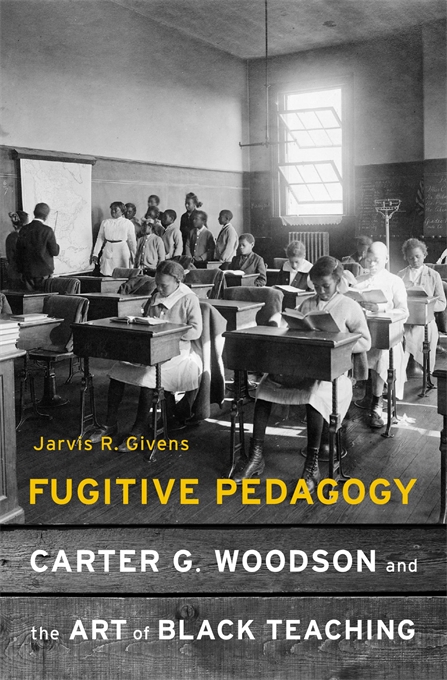Resources for Black History Month (and the rest of the year)

Established in 1976 (as an expansion of Negro History Week, first established by Carter G. Woodson in 1925), Black History Month has been observed for over forty-five years. Black history is part of American history. Slavery and civil rights activism are major points of entry into Black history, but Black history involves more than enslavement’s beginning, duration, and end, and more than the resulting struggle for civil rights, important as those histories are. We can also ask questions about Blacks’ contributions to American culture, to American politics, to every aspect of American history and life. We can ask how the ways in which history is written, how history gets “done” may have limited Black history to a smaller number of undoubtedly important figures, who cannot be downplayed, but whose stories do not have to outweigh other, lesser-told stories.
We can also ask about what kinds of materials are held in archives and Special Collections libraries. Research libraries have emerged which focus specifically on African-American historical collections: the Schomburg Center for Research in Black Culture in Harlem, a branch of the New York Public Library, is the largest library of this type in the United States. The second-largest library dedicated to African-American historical collections is here in Atlanta: the Auburn Avenue Research Library, a branch of the Atlanta-Fulton County Public Library is literally just down the street from Georgia State University. Local archives here in Atlanta with significant African-American historical materials, including materials relating to African-American literary figures, include
- King Center
- Atlanta University Center’s Woodruff Library Archives Research Center
- Emory University’s Stuart A. Rose Manuscripts, Archives, and Rare Book Library (MARBL)
- Atlanta History Center
- National Archives Southeast Center
- Georgia Archives
Reference staff at these organizations can provide more information about their holdings of Black historical resources. These libraries and archives include digitized materials from their collections as well.
For other digital collections of Black historical materials, see for example:
- Umbra Search, which draws on digitized African-American historical materials from around the US
- Digital Library of Georgia, which includes the Civil Rights Digital Library, among other collections
- The Chicago Defender and the Atlanta Daily World, historical Black newspapers which covered Black news from many other regions. Those links go to GSU’s online databases, but, if you have a Fulton County library card (and all GSU students/faculty/staff are eligible for one regardless of what county you live in) you can access these and several other historical Black newspapers in the ProQuest Historical Black Newspapers collection for free online. Check with the Auburn Avenue Research Library directly about access to their electronic resources with a Fulton County library card.
- African American Newspapers (19th-century newspapers; link is for access for GSU affiliates only, but Auburn Avenue Research Library also offers access; see above)
- History Vault: Black Freedom Struggle (access for GSU affiliates only)
The GSU Library collects books and other sources that provide information and insight into the breadth and ongoing development of Black-historical knowledge. By learning more about Black history, we can also identify tools, questions, and ways of thinking about history that will help us continue to expand our awareness of American history—all year round. In this way, every book or article about Black history not only expands and deepens our knowledge… they also suggest questions and tools that readers can use to ask about and learn about Black history as part of American history.
Recently acquired books on Black history include (but are not limited to!):
- Hanif Abdurraqib, A Little Devil in America: Notes in Praise of Black Performance (2021)
- Derrick P. Alridge et al., Black Intellectual Tradition: African American Thought in the Twentieth Century (2021)
- Erica Ball, Madame C. J. Walker: The Making of an American Icon (2021)
- Natalie Baszile, We Are Each Other’s Harvest: Celebrating African American Farmers, Land, and Legacy (2021)
- Zoë Burkholder, An African American Dilemma: A History of School Integration and Civil Rights in the North (2021)
- Christopher Cameron and Phillip Luke Sinitiere, Race, Religion, and Black Lives Matter: Essays on a Moment and a Movement (2021)
- Stephanie Evans, Black Women’s Yoga History: Memoirs of Inner Peace (2021)
- Douglas J. Flowe, Uncontrollable Blackness: African American Men and Criminality in Jim Crow New York (2021)
- P. Gabrielle Foreman, Jim Casey, and Sarah Lynn Patterson, eds., The Colored Conventions Movement: Black Organizing in the Nineteenth Century (2021)
- Kim Gallon, Pleasure in the News: African American Readership and Sexuality in the Black Press (2021)
- Henry Louis Gates Jr., The Black Church: This Is Our Story, This Is our Song (2021)
- Deanna M. Gillespie, The Citizenship Education Program and Black Women’s Political Culture (2021)
- Aston Gonzalez, Visualizing Equality: African American Rights and Visual Culture in the Nineteenth Century (2021)
- Van Gosse, The First Reconstruction: Black Politics in America from the Revolution to the Civil War (2021)
- Vanessa M. Holden, Surviving Southampton: African American Women and Resistance in Nat Turner’s Community (2021)
- Ibram X. Kendi and Keisha N. Blain, eds., Four Hundred Souls: A Community History of African America, 1619-2019 (2021)
- Yu Sasaki, Media Representations of African American Athletes in Cold War Japan (2021)
- James Edward Smethurst, Behold the Land: The Black Arts Movement in the South (2021)
- Crystal Lynn Webster, Beyond the Boundaries of Childhood: African American Children in the Antebellum North (2021)
And finally, in honor of the founder of Negro History Week, Carter G. Woodson:
- Jarvis R. Givens, Fugitive Pedagogy: Carter G. Woodson and the Art of Black Teaching (2021)